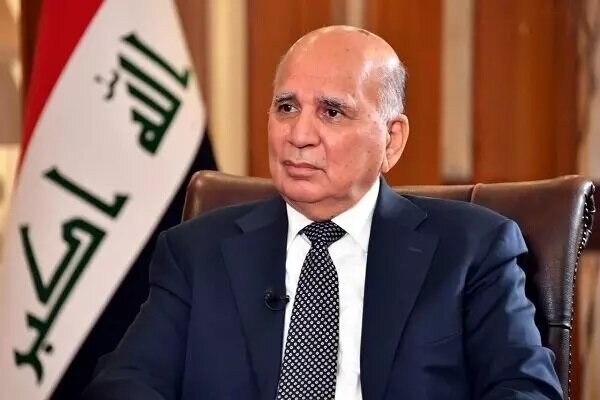Hussein told Iraq’s Kurdish-language Rudaw television news network on Sunday evening that “Mohammed bin Salman has demanded senior Iraqi officials set up the meeting between Saudi Foreign Minister Prince Faisal bin Farhan Al Saud and his Iranian counterpart Hossein Amir-Abdollahian [in the Iraqi capital city of Baghdad]. We are busy organizing the event, and the timing will be announced later on.”
The Iraqi foreign minister noted that Saudi and Iranian delegates have already held five rounds of security-level meetings in Baghdad.
The confidential negotiations will be publicized through Iraq’s mediation, and Iranian and Saudi foreign ministers will meet in public, Hussein explained.
Earlier this month, the Saudi foreign minister said Riyadh was trying to find a path to dialogue with Tehran as the best way to resolve differences.
Speaking at a panel at the World Economic Forum in Davos on January 17, the chief Saudi diplomat said a decision by Saudi Arabia and other Persian Gulf states to focus on their economies and development was a “strong signal to Iran and others in the region that there is a pathway beyond traditional arguments and disputes toward joint prosperity.”
He added, “I think the more we can build a sense of cooperation in the region and the more we can work together, the more we can deliver not just prosperity for our people, but also for our immediate region and beyond.”
Amir-Abdollahian expressed hope on January 13 during a visit to Lebanon that diplomatic ties between Tehran and Riyadh could be restored through dialogue between them.
“We are ready to restore ties, and such a move would have positive repercussions on the entire region,” Amir-Abdollahian told a news conference in Beirut.
He also said the first steps should be resuming talks on reopening Iran’s consulate in the Red Sea port city of Jeddah, and Saudi Arabia’s consulate in the holy northeastern Iranian city of Mashhad for citizens interested in religious travel.
Saudi Arabia severed diplomatic relations with Iran in January 2016 after Iranian protesters, enraged by the execution of prominent Shia cleric Sheikh Nimr Baqir al-Nimr by the Saudi government, stormed its embassy in Tehran.
The kingdom then pursued a confrontational foreign policy toward the Islamic Republic, especially during the administration of former US President Donald Trump, with whom the Saudi rulers had close ties.
Saudi Arabia appears to have recently changed its antagonistic course, showing willingness through diplomatic channels and third parties to mend fences with Tehran and resume bilateral relations.
The two neighbors remain deeply divided over a set of regional issues, mainly the destructive and protracted Saudi war on Yemen.
MNA/PressTV

























Your Comment